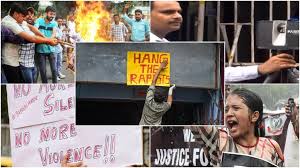On August 18, 2024, the postgraduate trainee doctor’s murder and rape at R.G. Kar Medical College and Hospital in Kolkata were brought before the Supreme Court of India suo motu. This ruling is an important judicial reaction to an extremely concerning situation that has sparked public indignation and calls for justice.
Following an order from the Calcutta High Court on August 13, which moved the inquiry from the Kolkata Police to the Central Bureau of inquiry (CBI), the Supreme Court took action. Growing doubts regarding the suitability of the local police’s handling of the case led to the initiating of this transfer. A civic volunteer was first detained by the Kolkata Police in connection with the incident, but questions were raised over the objectivity and completeness of the local investigation.
The case centers on the vicious attack and killing of a young, female postgraduate trainee at the medical college—a tragedy that has shaken the country and brought to light important concerns about the security and safety of medical personnel in India. Residents and medical students have taken to the streets in large numbers to protest the tragedy, demanding more robust safety protocols and legal protections for medical personnel.
By choosing to exercise suo motu cognizance, the Supreme Court is intervening on its own initiative to guarantee justice in this instance even in the absence of a formal petition. This move demonstrates the judiciary’s commitment to treating significant offenses with the urgency that they require and emphasizes how seriously it views the incident.
On August 20, 2024, a three-judge bench led by Chief Justice of India D.Y. Chandrachud is scheduled to hear the case. This accelerated hearing shows the court’s intention to move quickly to resolve the matter and guarantee that the most stringent scrutiny is applied to the investigation. The CBI’s involvement is anticipated to provide new insights and possibly more resources to the inquiry, with the goal of determining the whole truth about the crime and guaranteeing that justice is done.
The Supreme Court’s intervention is in line with broader worries about healthcare workers’ safety and the requirement for a strong legal framework to safeguard them. Discussions on enhancing hospital safety protocols and making sure that such horrible acts are properly looked into and prosecuted have centered around this case.
SOURCE :
THE HINDU








